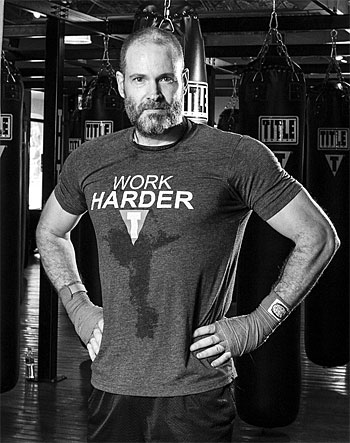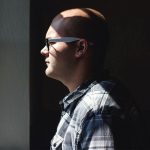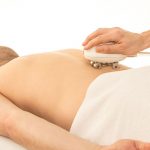- Like
- SHARE
- Digg
- Del
- Tumblr
- VKontakte
- Flattr
- Buffer
- Love This
- Save
- Odnoklassniki
- Meneame
- Blogger
- Amazon
- Yahoo Mail
- Gmail
- AOL
- Newsvine
- HackerNews
- Evernote
- MySpace
- Mail.ru
- Viadeo
- Line
- Comments
- Yummly
- SMS
- Viber
- Telegram
- JOIN
- Skype
- Facebook Messenger
- Kakao
- LiveJournal
- Yammer
- Edgar
- Fintel
- Mix
- Instapaper
- Copy Link
 We should all hope to live as long as we can. But aging successfully is about more than extending life, it’s about making life better and more enjoyable for as long as we can – living life actively and independently without disease or chronic illness.
We should all hope to live as long as we can. But aging successfully is about more than extending life, it’s about making life better and more enjoyable for as long as we can – living life actively and independently without disease or chronic illness.
One in four Americans live with chronic conditions like arthritis, diabetes, heart disease, and high blood pressure. Those conditions prevent them from living independently and living life to its fullest.
That said, we’re here to tell you that there’s a lot you can do to prevent those conditions from taking root. These tips will help your body, mind and immune system get stronger. They should also give you more energy and make you happier.
#1. Nutrition
Food is the fuel that keeps your engine running. What we put into our body affects our heart, bones, mood, sleep and energy levels. There’s lots of noise and fads on the latest diets. But there is consensus on the following:
- Drink lots of liquids. This is especially true as we age. Even if you lose your sense of thirst or frequently contract urinary infections drinking liquids is essential to avoid dehydration.
Try to drink 8 cups of liquids a day. However, avoid liquids that are high in sodium, fat or sugar. Good options include water, real fruit juice, low fat / low sodium soups and skim milk.
- Eat a balanced diet, with reasonable portions and lots of colors. These Dietary Guidelines offers a good starting point for what and how much you should eat each day:
- Fruits—1½ to 2½ cups
- Vegetables—2 to 3½ cups
- Grains—5 to 10 ounces
- Protein foods—5 to 7 ounces (3 ounces is about the size of the palm of your hand)
- Dairy foods—3 cups of fat-free or low-fat milk
- Oils—5 to 8 teaspoons
#2. Sleep and age
As we age, it becomes more difficult to get a full night’s sleep, but no less important. Conditions like sleep apnea, acid reflux, arthritis, depression and anxiety all lead to less sleep.
According to the Center for Disease Control most adults should be getting about 7-9 hours of sleep a night. Lack of sleep can lead to significant negative health effects like obesity, diabetes, high blood pressure, and a supressed immune system, not to mention bad moods, poor memory and low energy.
Do everything you can to get a good night’s sleep. Some tips include avoiding caffeine, nicotine and alcohol which are all stimulants. Avoid drinking too much before bed so you don’t wake up to go to the bathroom in the middle of the night. Exercise earlier in the day. Keep screens out of the bedroom. Keep your bedroom dark, quiet and at a nice temperature.
#3. Exercise
There’s no getting around it. To age successfully you have to stay active. You don’t have to run a marathon or train for the Mr. Olympia. But you have to get off the couch and do something EVERY day.
U.S. Health Guidelines suggest adults do the following for substantial health benefits:
- At least 150 minutes of moderate aerobic activity or 75 minutes of intense aerobic activity per week
- Strength training 2 times per week
For even more health benefits, the Guidelines suggest:
- At least 300 minutes of moderate aerobic activity or 150 minutes of intense aerobic activity per week
- Strength training 2 times per week
#4. Preventive care
No matter how hard we try, sometimes we still may contract a disease or ailment. What we know however, is that when we catch things sooner rather than later, we have a better chance of dealing with the problem and limiting the damage it can do. This is true for things like cholesterol, weight and cancers.
As we age, we should schedule a visit with your doctor every year. Get your blood tested. Get breast cancer screenings, check for colorectal cancer, diabetes, blood pressure and get your vaccinations.
You may want to also get your eyes examined more frequently as you age and get your teeth cleaned at least once a year.
You may also want to take the chance to improve the safety of your home to avoid unnecessary accidents. This is especially true as we get older, where 1 in 3 adults over the age of 65 fall each year.
Add grip mats and grab bars in your bathrooms. Make sure your house is well lit and common walking paths are free from clutter you can trip on. Get rid of footwear with high heels and make sure slippers sling around the back of your heel. Avoid area rugs whose edges are easy to trip on.
For older folks that live alone and are worried about falling, consider getting a medical alert system that either detects a fall or allows you to press a help button in the event of a fall. 50% of older adults who fall can’t get up on their own and 90% of those who fall and get help within an hour come home from the hospital.
These preventative measures should help reduce the chances of getting injured or getting a chronic condition. In the least it will help catch any condition early in the ball game. Avoiding the doctor will only make things worse in the long term.
The following medicare supplement plans are a great place to start if you’re in need of your next health checkup. Also, don’t miss Health.com’s review of Medicare Advantage plans.
#5. Social Relationships
There’s no doubt about it, the more socially connected you are, the deeper the friendships you have, the happier, healthier and longer you’ll live.
According to the National Institute on Aging, research shows that social relationships:
- Are associated with positive health bio-markers;
- Reduces risk ofAlzheimers, osteoporosis, arthritis and cardiovadcular disease;
- Reduces social isolation which, in turn, reduces morbidity and mortality
- Reduces chance of high blood pressure;
- Reduces chanceof depression.
So stay connected with friends and family. Get together for dinners, cards, walks, holidays, and birthdays. Go to the kid’s soccer game as a family with the grandparents. Meet new friends through work, volunteering or at the community center.
Also, don’t let age get in the way of a good sex life. Sex can deepen your relationship, make you happy and improve your sleep! You can also count it as part of your cardio routine!


